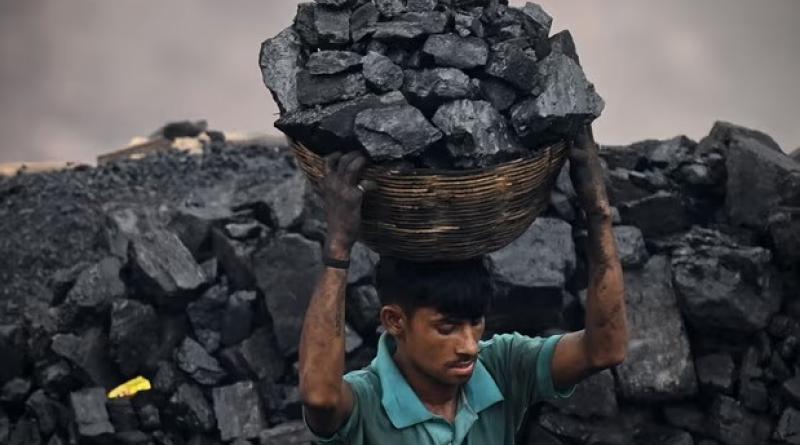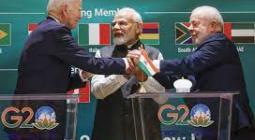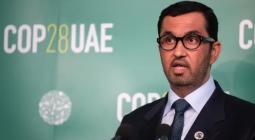Global push for commitment to phase out fossil fuels gathers pace ahead of Cop28

UN hopes to galvanise summit talks by persuading world leaders to commit to stop burning coal, oil and gas, despite industry lobbying
A global push to commit to phasing out fossil fuels is gathering new momentum before a crucial UN climate conference this autumn, despite stiff opposition from oil-producing countries.
Campaigners are ramping up efforts to put an undertaking to stop burning not just coal, the dirtiest fossil fuel, but also oil and gas on the UN agenda ahead of the Cop28 summit in Dubai in late November, the Observer has learned.
Over the past two years attempts to persuade world leaders to make the commitment, which has strong scientific underpinning, have failed. But the campaign has had an unexpected boost in the fine print of a UN draft report.
The global stocktake – an assessment of whether countries are meeting the emissions pledges made under the 2015 Paris agreement – recommended “transformations across all sectors and contexts, including scaling up renewable energy while phasing out all unabated fossil fuels”.
Experts said the inclusion of this call in a key UN document would have a galvanising effect on the talks.
Alok Sharma, president of Cop26, said: “I welcome the report’s call to scale up renewable energy and phase out unabated fossil fuels. These will undoubtedly be key discussion points at Cop28, and if we are to have any hope of keeping 1.5C alive, countries need to reach agreement on these critical elements in Dubai. It would be a significant achievement, and a win for people and the planet, if at Cop28 the world agreed to consign fossil fuels to history.”
Bill Hare, chief executive of Climate Analytics, a Berlin-based climate science and policy institute, said: “This is an important step forward, and a strong message in the lead-up to Cop28. It’s a major pushback on the massive lobby from the oil and gas industry [which has been] trying to greenwash new developments, when the science says this is completely contradictory to the world achieving the Paris limit of 1.5C [of global heating above pre-industrial levels].”
Such forthright language was unexpected – and initially overlooked by most commentators when the report was published last Friday. But as the global stocktake has been cited numerous times by the host country, the United Arab Emirates, as the foundation for the talks, many believe it will strongly boost the chances that leaders will have to discuss phasing fossil fuels out completely.
“After this official report, this process will lose all credibility if fossil fuel phase out isn’t a central agenda item in Dubai,” said Romain Ioualalen of pressure group Oil Change International. “If Cop28 fails to deliver a clear roadmap for a rapid and equitable phase out of all fossil fuels, the advent of the renewable energy era, and adequate finance to the most vulnerable countries, it will be an utter failure.”
Bob Ward, policy director at the Grantham Research Institute on Climate Change at the London School of Economics, said leading oil-producing countries such as the US and Saudi Arabia would have to come clean on their plans. “The clear and unambiguous language on fossil fuels should make it more difficult for vested interests to block serious discussions about a phase out at Cop28. It’s time for an agreement on phase-out dates for the unabated use of all fossil fuels, and essential that those who want to delay an end to the age of fossil fuels emerge from the shadows and no longer secretly manipulate climate negotiations.”
The UAE itself has declined to commit to phasing out fossil fuels by a certain date. The Cop28 president, Sultan Al Jaber, who is head of the UAE’s national oil company, Adnoc, has several times told the Observer he saw a “phase down”, rather than a “phase out”, as necessary.
Al Jaber has also repeatedly insisted that such strictures apply only to “unabated” fossil fuels, an important qualification that has remained in the text of the global stocktake. The term means countries such as the UAE could continue to rely on oil and gas if they invest in carbon capture and storage (CCS) technology
But, Ioualalen said, the global stocktake contains a warning against overreliance on CCS. “The report casts serious doubt on the role of so-called abatement technologies such as CCS,” he said. “Such unproven technologies are a crutch that will not absolve countries from a rapid and deep phase out of fossil fuels, and cannot be used to justify continued fossil fuel expansion.” The renewed push for a phase-out of fossil fuels comes as UN secretary general António Guterres prepares to convene world leaders in a top-level round table on the climate crisis on 20 September. The meeting will take place without Rishi Sunak, the UK prime minister, whose government has boasted of “world-leading” climate policy.
The UN told countries weeks ago that they could only participate in the summit, on the sidelines of the annual UN general assembly in New York, if they could show strong evidence of effective emissions-cutting policy. Sunak, by contrast, has appalled many climate champions by vowing to “max out” North Sea oil and gas licences.
His actions might have denied him entry to the select meeting of world leaders, but Sunak has avoided that potential embarrassment by skipping the UN meeting altogether, the first time in a decade that a UK prime minister has failed to attend.
Guterres’s aim in restricting participation is to persuade countries to implement tangible changes in their economies, rather than simply set targets. He hopes to “raise the bar” for world leaders, showing that shifting to a low-carbon economy is achievable and attractive.
Photograph: Money Sharma/AFP/Getty Images - A labourer in an opencast mine on the outskirts of Dhanbad in India's Jharkhand state. Campaigners hope Cop28 can be a step forward in phasing out fossil fuels.





